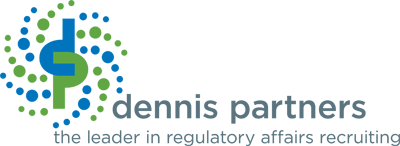
The word “change” can emit a range of emotions from fear, anxiety and anger to anticipation and excitement. But change really just represents a transition from a known to an unknown. Every year we see enormous changes in life sciences and that trickles down to regulatory affairs. Sherry Keramidis’ interview regarding her 20-year career with RAPS speaks volumes to the changes within regulatory affairs and one can only fathom where it will be in 20 years.
Our first regulatory placement was in 2004 and for the next four years, we only made regulatory placements for generalists, CMC, and operations professionals. It wasn’t until 2009 that we began placing ad/promo and international professionals. Fast forward and now we are placing candidates internationally. In the US, many companies are now hiring people with focuses on LATAM, BRIC, AsiaPac, and we seeing labeling break apart from advertising and promotion.
So where will the regulatory affairs profession move next? What are just a few of the factors that could impact this role, short of the everyday news we are all familiar with – mergers & acquisitions, failed trials, pricing issues, politics, etc.? In the US, Mandatory eCTD Submissions will be in effect by May 5, 2017. Globally Britain will hold an in/out referendum on Britain’s membership of the EU by the end of 2017, India has a shortage of its own regulatory talent, and the landscape within the global markets is changing rapidly. How will regulatory affairs change and how should we all prepare for this change so that we approach it with a sense of eagerness rather than dread?
Now that Regulatory Affairs has become such a vital part of the success of any Bio/Pharma company, companies must weigh all domestic and international factors, contemplating the impact on their own company. Companies must begin to have foresight into the trends. Employees now have to be more pro-active, looking for new trends and being aware of which skill sets might be obsolete and therefore, must be updated. Fortunately, other changes in technology and information delivery make it easier for people to obtain the data needed to make educated decisions. There is a wealth of information at our fingertips and ears – we just have to be open to listening, reading and absorbing. There are numerous associations, webinars, seminars, and conferences. Even googling these and skimming the titles gives a hint of insight.
One place people don’t often think of going is to their Regulatory Affairs recruiter. Why? Because we are the people that either a company or person turns to when they have a real need. Why not turn to a recruiter for advice? Think about it, recruiters talk to hundreds of people at varying levels of their career. The companies represented can vary from big pharma to start-up biotech. But these people see the trends in hiring, how the landscape changes when the FDA rejects a drug, or a company is acquired, either domestically or abroad, and so on. These people are experts in regulatory affairs information.
It does not matter if you are a Vice President of a company with a drug in phase II or a person who is completely satisfied with their career path. Life will change for all of us, whether we want it to or not. It is up to each and every one of us to decide if we want to be pro-active or re-active. I wish you all a pro-active path filled with anticipation, curiosity and satisfaction.
